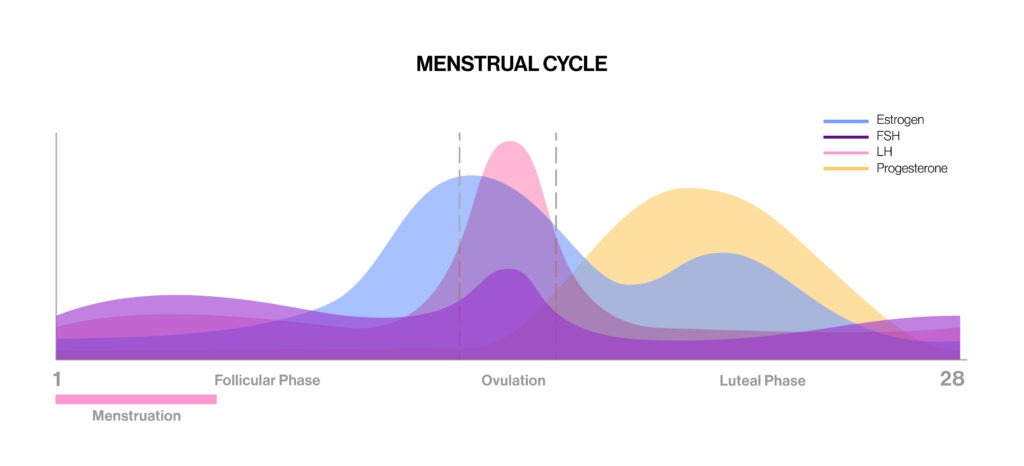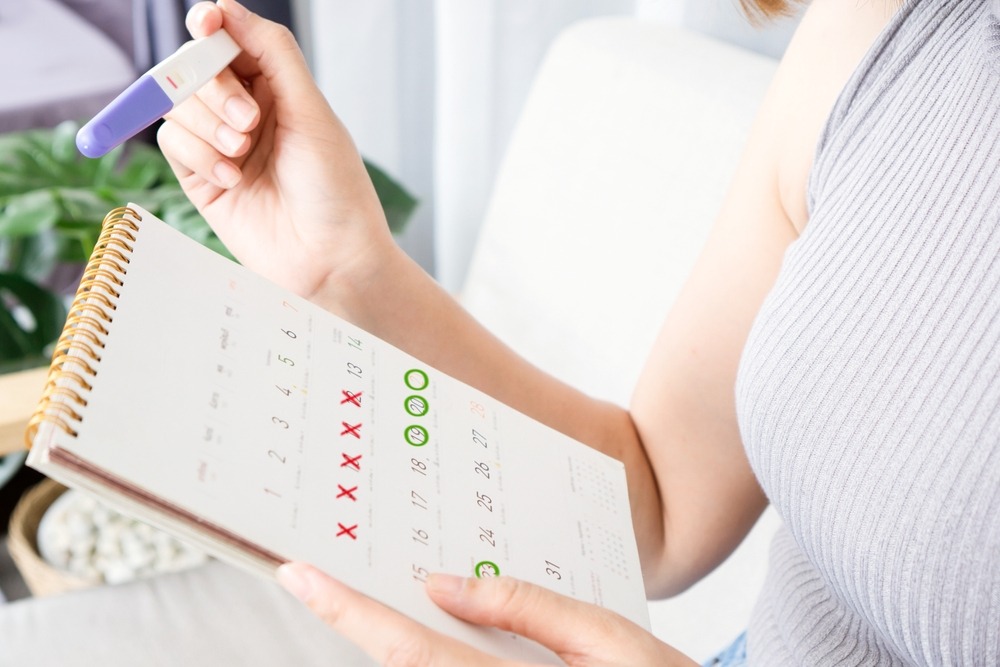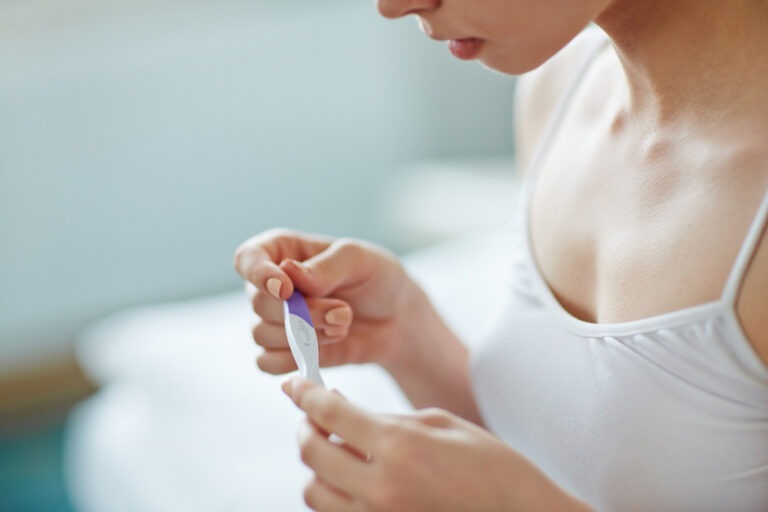For couples embarking on the journey to parenthood, the “fertility window” is an important concept that can significantly improve your chances of conceiving. Let’s explore how to find this crucial period and what steps you can take to maximize your chances of conception.
What is the Fertility Window?
The fertility window typically spans about six days during each menstrual cycle: the five days before ovulation and the day of ovulation itself. Ovulation occurs when your ovary releases an egg that can be fertilized by sperm. Since sperm can survive in the female reproductive tract for up to five days, having intercourse during this window provides the best opportunity for conception 1.

How to Track Your Fertility Window
Basal Body Temperature Method
One reliable way to track ovulation is by monitoring your basal body temperature (BBT). Your body’s temperature at rest typically increases slightly during ovulation due to hormonal changes, by about 0.2°F 2. To use this method:
- Use a thermometer designed specifically for measuring BBT
- Take your temperature every morning before getting out of bed
- Record the results daily and look for a pattern
- Fertility is typically highest during the 2-3 days around the time your BBT rises 2
Cervical Mucus Changes
Throughout your menstrual cycle, the consistency and appearance of cervical mucus change. As you approach ovulation, cervical mucus becomes clear, slippery, and stretchy. It can look like egg whites. This change in cervical mucus creates an environment that helps sperm travel to the egg. Monitoring these changes can help you pinpoint your most fertile days 3.
Ovulation Predictor Kits
Home ovulation test kits are widely available without a prescription. These kits test urine for the surge in luteinizing hormone (LH) that occurs approximately 24-36 hours before ovulation 4. This advance notice gives you time to plan intercourse during your most fertile period.
Improving Your Chances by Timing Intercourse
The frequency and timing of intercourse significantly impact conception rates:
- Having sex daily or every other day during your fertile window provides the highest chance of conceiving
- If daily intercourse isn’t feasible, aim for every 2-3 days starting soon after your period ends
- Continue this pattern through your expected ovulation date 1
While this doesn’t guarantee you will get pregnant, it makes it more likely to have live sperm around when the egg is present.
Lifestyle Considerations
Several lifestyle factors can affect fertility:
Maintain a Healthy Weight
Being either overweight or underweight can disrupt your hormones and affect ovulation. Achieving a healthy weight before trying to conceive may improve your chances of success 5.
Avoid Tobacco and Alcohol
Tobacco use can harm fertility for both partners, while heavy alcohol consumption may reduce fertility. It’s best to avoid both when trying to conceive 6.
Exercise Regularly
Generally, regular, moderate exercise can help with overall health and fertility. However, if you engage in excessive high-intensity exercise for more than 5 hours a week, you may want to cut back. Exercising too much can impact ovulation, especially in women with a low body weight 7.
Start Prenatal Vitamins Early
Start taking a prenatal vitamin with folic acid several months before trying to conceive. This reduces the risk of neural tube defects 8.
When to Seek Professional Help
Most healthy couples who have regular unprotected sex conceive within one year. Consider consulting a healthcare provider if:
- You’re younger than 35 and have been trying unsuccessfully for more than one year
- You’re 35 or older and have been trying unsuccessfully for six months
- You have known fertility issues or underlying health conditions
- You experience irregular menstrual cycles or other reproductive health concerns
Remember that infertility can affect both men and women, and various treatments are available depending on the underlying cause 1.
Conclusion
Understanding and tracking your fertility window can significantly improve your chances of conception. By combining tracking methods with healthy lifestyle choices, you’ll give yourself the best chances for pregnancy. The journey to parenthood may take time but being informed and proactive puts you on the right path. Remember that each person’s fertility journey is unique, and patience, along with the right information, will guide you through this exciting time.
References
- Witt, MD, B. (2025, August). Trying to Get Pregnant? Here’s When to Have Sex. Retrieved from Every Stage Health, American College of Obstetricians & Gynecologists: https://www.acog.org/womens-health/experts-and-stories/the-latest/trying-to-get-pregnant-heres-when-to-have-sex
- Mayo Clinic. (2023, February 10). Basal body temperature for natural family planning. Retrieved from Mayo Clinic: https://www.mayoclinic.org/tests-procedures/basal-body-temperature/about/pac-20393026
- Miles, K. (2025, May 6). Cervical mucus: What it looks like through your cycle. Retrieved from Baby Center: https://www.babycenter.com/getting-pregnant/ovulation/cervical-mucus-what-it-looks-like-through-your-cycle_10351429
- Bradley, S. (2024, December 9). How do ovulation tests work? Retrieved from Baby Center: https://www.babycenter.com/getting-pregnant/ovulation/ovulation-predictor-kits_10405040
- Office on Women’s Health. (2021, Februrary 17). Weight, fertility, and pregnancy. Retrieved from Office on Women’s Health: https://womenshealth.gov/healthy-weight/weight-fertility-and-pregnancy
- ACOG. (2021, December). Tobacco, Alcohol, Drugs, and Pregnancy. Retrieved from American College of Obstetricians & Gynecologists: https://www.acog.org/womens-health/faqs/tobacco-alcohol-drugs-and-pregnancy
- Von, J. (2022, November 14). Can too much exercise make it harder to get pregnant? Retrieved from Motherly: https://www.mother.ly/getting-pregnant/exercise-and-pregnancy/
- King, M. (2022, January 6). When Should You Start Taking Prenatal Vitamins? Retrieved from Cleveland Clinic Health Essentials: https://health.clevelandclinic.org/when-to-start-taking-prenatal-vitamins




